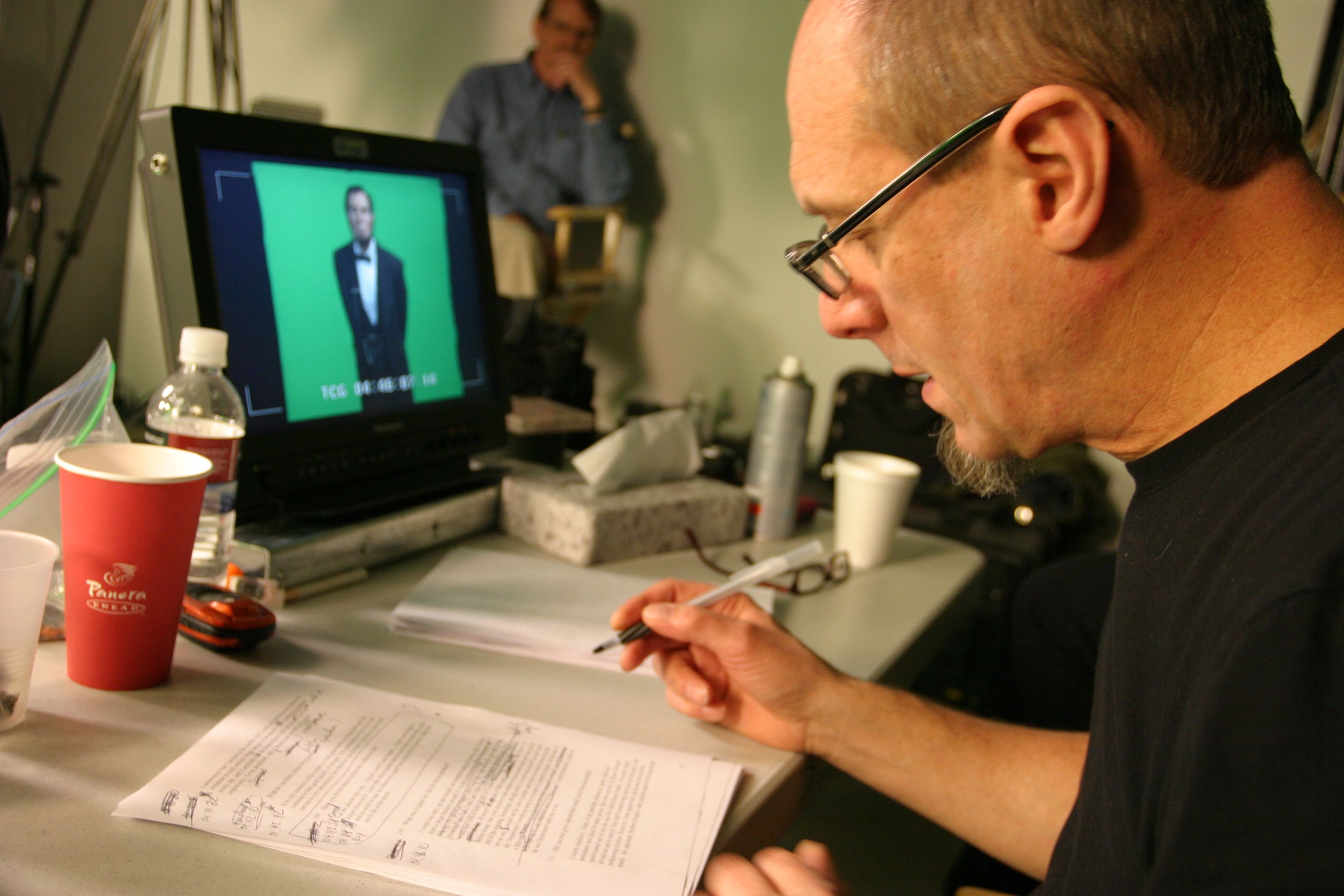Carnegie Mellon's ETC Creates Synthetic Abe Lincoln For Interactive Exhibit at National Civil War Museum
Byron SpiceTuesday, April 27, 2010Print this page.

PITTSBURGH-Abraham Lincoln, as played by veteran stage and TV actor James Hayney, is the focus of a new interactive exhibit at the National Civil War Museum in Harrisburg that enables visitors to ask the Great Emancipator questions about war strategy, the evils of slavery and the high and low points of his career.
Designed and produced by Carnegie Mellon University's Entertainment Technology Center (ETC), the exhibit uses Carnegie Mellon's Synthetic Interview Technology to give visitors selective access to hours of video depicting Lincoln and six other figures, including Mary Todd Lincoln and John Wilkes Booth. Visitors can select from 200 questions that they can ask of Lincoln, and from about 10-12 questions for each of the secondary characters.
In response, a life-size video image of Lincoln or one of the other characters answering the question is projected in the exhibit kiosk.
"A Synthetic Interview deeply engages people with a person or time period in a way that just isn't possible when passively viewing a film," said Don Marinelli, executive producer of the ETC. "And when we pair this technology with a figure as revered as Abraham Lincoln, the effect is powerful. I think visitors to the National Civil War Museum will see some unexpected sides of Lincoln at this exhibit and will leave the museum with a fresh appreciation of why he remains such a towering figure in American history."
Work on the Synthetic Interview began last September at the ETC and was led by supervising producer Shirley Saldamarco. Another ETC faculty member, Ralph Vituccio, director of media-special projects, wrote the script and directed the videotaping, and a third, digital artist John Dessler, wrote the software that retrieves the appropriate video in response to each question.
The exhibit is now operating at the museum. A grand opening ceremony is scheduled for May 12.
"I'm happy to be part of the high tech program," Hayney said. "Anytime I can bring one of the greatest Americans who ever lived back to life for folks today, I'm one happy thespian."
Synthetic Interview Technology was developed in 1998 by Scott Stevens and Michael Christel, ETC senior systems scientists. With the help of actors, it has been used to create interactive experiences with historic figures such as Benjamin Franklin, Charles Darwin and George Westinghouse. It also has been used with video of actual people, such as Fox Sports' NASCAR drivers and analysts. A Synthetic Interview of Marinelli is included in copies of his new book about the ETC and ETC co-founder Randy Pausch, "The Comet and The Tornado."
The Lincoln exhibit features Hayney and the other actors responding to questions submitted by students and museum visitors. "I've been an admirer of Mr. Lincoln all of my life," said Hayney, who lives in Camp Hill, Pa. "In many ways Lincoln's influence in shaping American history continues right down to this day. Most Americans look to Lincoln's administration as a turning point in defining the American nation and our national character as we know it today."
Kelly Lewis, chief executive officer of the Technology Council of Central Pennsylvania, was the catalyst for bringing the Carnegie Mellon technology to Central Pennsylvania. "We view The National Civil War Museum and other local institutions as ideal opportunities for cyber applications, network resources, and as a platform to provide schools, intermediate units and related entities the ability to create content and curriculum materials more easily." Lewis also serves on the board of directors of the museum and helped develop a grant to fund the project.
The ETC is operated jointly by the School of Computer Science (SCS) and the College of Fine Arts (CFA). On Twitter, follow CFA @CarnegieMellCFA.

Byron Spice | 412-268-9068 | bspice@cs.cmu.edu
